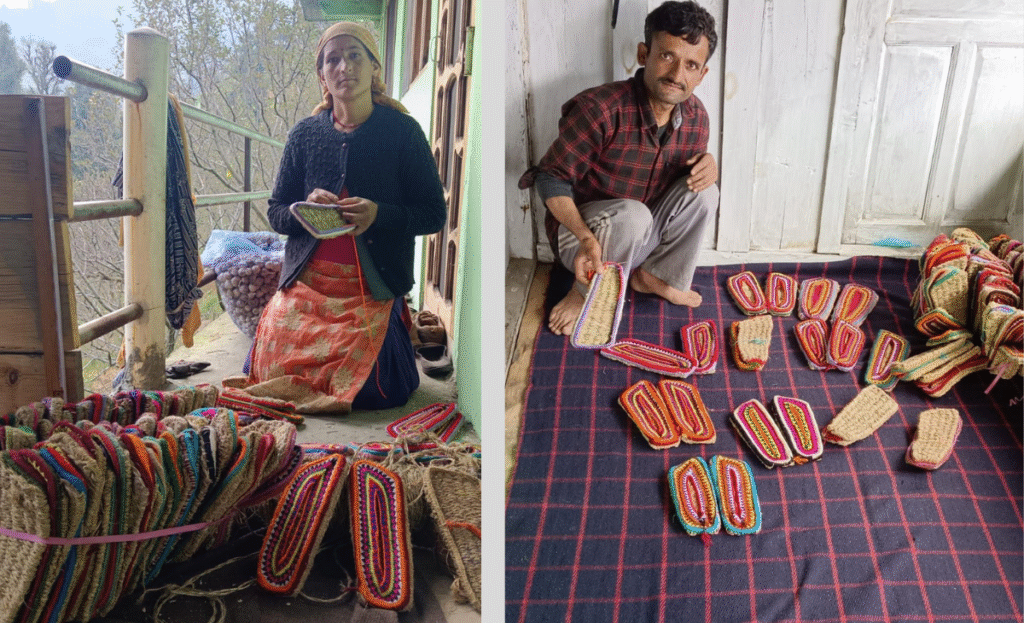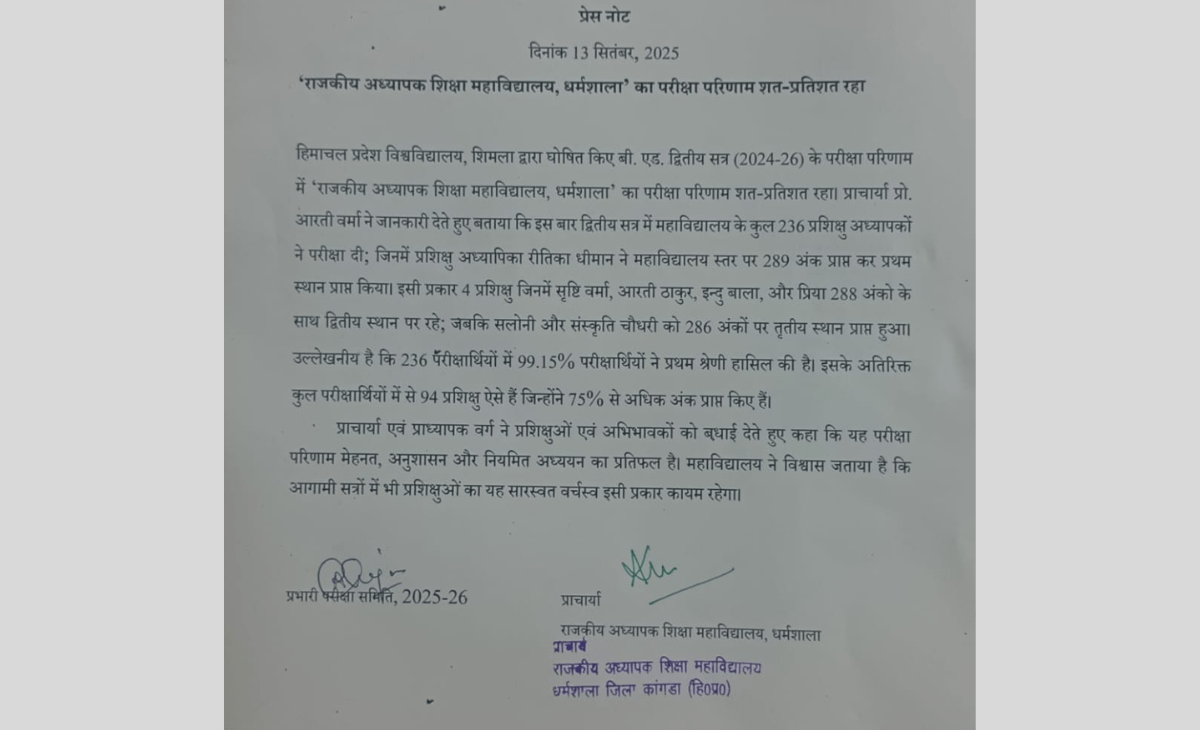Ex-CM recalls incident as BJP holds ‘Sewa Pakhwada’ to mark PM’s 75th birthday
Special Story
Munish Sood
MANDI:
In the remote villages of Himachal Pradesh’s Mandi district, far from the political stage and power corridors of Delhi, two women artisans once found themselves entrusted with an unusual responsibility. Their traditional craft — handmade woollen slippers known locally as ‘poolen’ — was chosen to serve a sacred purpose in one of India’s holiest cities.
On the personal request of Prime Minister Narendra Modi, these slippers were specially prepared for the priests of the Kashi Vishwanath temple in Varanasi. The Prime Minister, known for his eye for cultural detail, wanted to ensure that the priests who perform barefoot rituals during the cold mornings of Uttar Pradesh’s winters had something warm and rooted in tradition to protect their feet.
Women behind the craft
The task fell to Rameshu Devi of Sandocha village in Chhatarri sub-tehsil and Neha Devi of nearby Kandhidhar village. Together, with the help of other women in their self-help groups, they crafted nearly 300 pairs of poolen, working day and night to meet the order.
For them, it was no ordinary assignment but an opportunity that linked their humble homes and skills to the Prime Minister’s personal vision for Varanasi, popular as Kashi.

“When Jai Ram ji told us this was a special order for the Prime Minister, we couldn’t believe it at first,” recalls Rameshu Devi. “We felt proud that our work would travel all the way to Kashi Vishwanath temple. For us, it was the biggest day of our lives.”
Neha Devi shares the same sentiment. “We were not just making slippers but making a cultural gift. To know that the priests would wear something made by our hands was a blessing in itself,” she said.
The women’s efforts culminated in a consignment of slippers sent to Shimla, then to Delhi via former Chief Minister Jai Ram Thakur’s office, before finally reaching Varanasi.
Story resurfaces during ‘Sewa Pakhwada’ to mark PM’s 75th birthday
This week, as the BJP observes a fortnight-long ‘Sewa Pakhwada’ to celebrate the Prime Minister’s birthday, the story resurfaced when Jai Ram Thakur shared a video recalling the episode. In his account, he described the surprise of receiving a personal phone call from Modi years ago, during Jai Ram’s tenure as the Himachal Chief Minister.
“At first, I couldn’t believe the Prime Minister himself was calling me,” Thakur said. “But Modi ji spoke warmly, and with great care asked me to arrange for Himachal’s poolen. He even insisted that the bill be sent along with them.”
The anecdote was meant to showcase Modi’s humility and personal connect, but it has organically shifted focus toward the women artisans who transformed the request into reality.
Himachal ‘poolen’: A cultural legacy
The poolen are no ordinary footwear. Deeply embedded in Himachal Pradesh’s cultural identity, they are handmade slippers traditionally worn indoors during winter.
• Material: The soles are made from hemp fibre, while the uppers are woven with bright woolen threads.
• Design: The colourful geometric patterns reflect Himachali artistry, evolving over time from simple weaves to more intricate designs.
• Utility: They keep the feet warm and the home clean, making them both functional and symbolic of the mountain lifestyle.
• Craftsmanship: Each pair takes two to three days to make, requiring patience and dexterity.
For artisans like Rameshu Devi and Neha Devi, making poolen has been a livelihood for years. She usually sells them to local traders, earning modest income. But the order that came via the Prime Minister’s office was unlike any other — both in scale and in honour.
Women empowerment through tradition
The story also underlines the growing recognition of women’s contributions in sustaining India’s handicraft traditions. By trusting local women’s self-help groups with the task, a bridge was built between grassroots artisans and the nation’s highest leadership.
For the women of Sandocha and Kandhidhar, the experience was more than a transaction — it was empowerment, a validation that their traditional skills carry value even in modern India. “This was not just about slippers,” said Neha Devi. “It was about our identity as Himachali women and our craft being recognised at such a level.”
The final destination of the slippers — Kashi Vishwanath temple — adds another layer of meaning. Modi, who represents Varanasi in Parliament, has long emphasised preserving India’s spiritual and cultural heritage. By gifting poolen to the priests, he sought to blend Himachal’s traditions with the rituals of one of Hinduism’s most sacred shrines. For the priests, it was a gesture of care. For the women of Mandi, it was history. And for Rameshu and Neha, that journey has become a memory that no celebration, no political campaign, and no passage of time can take away.





